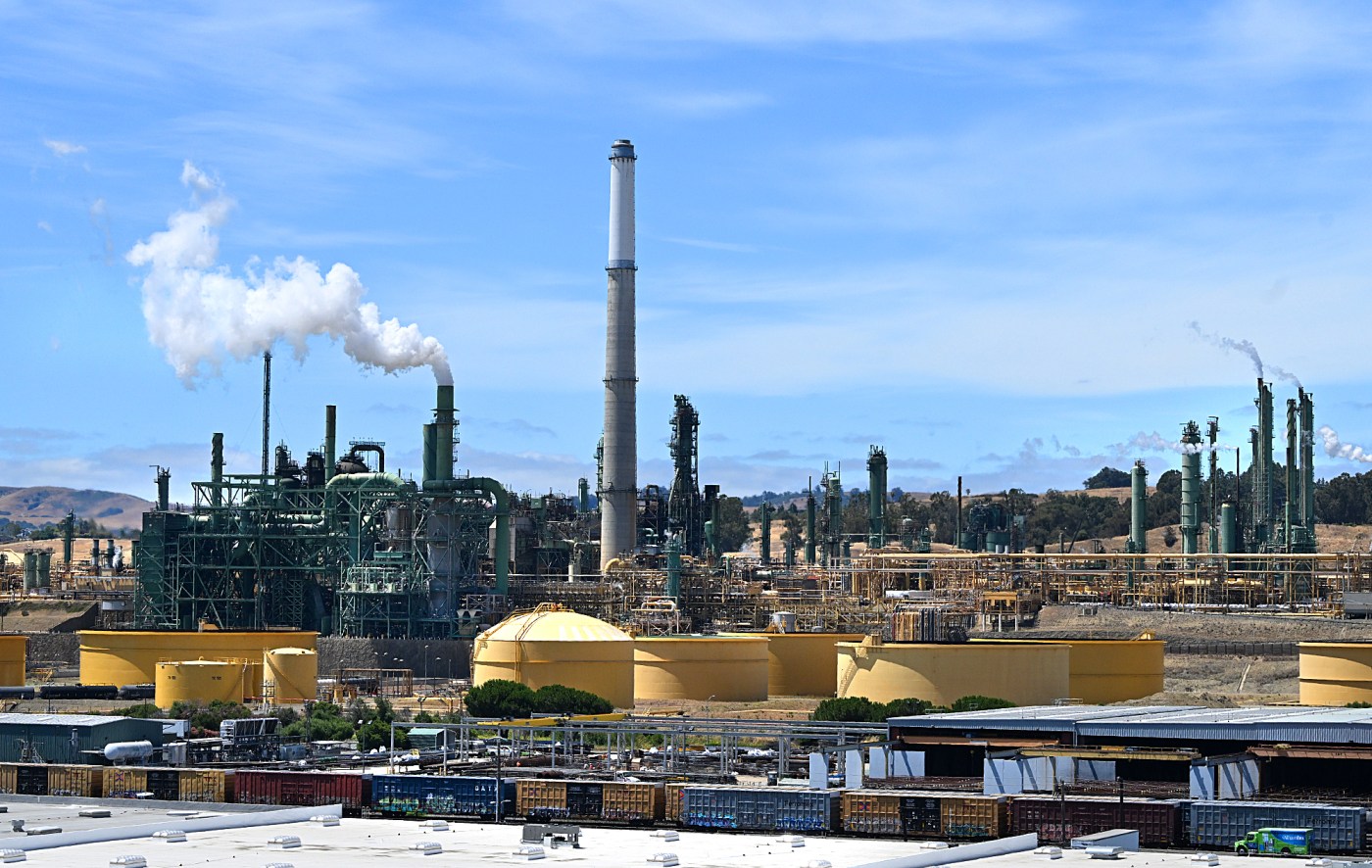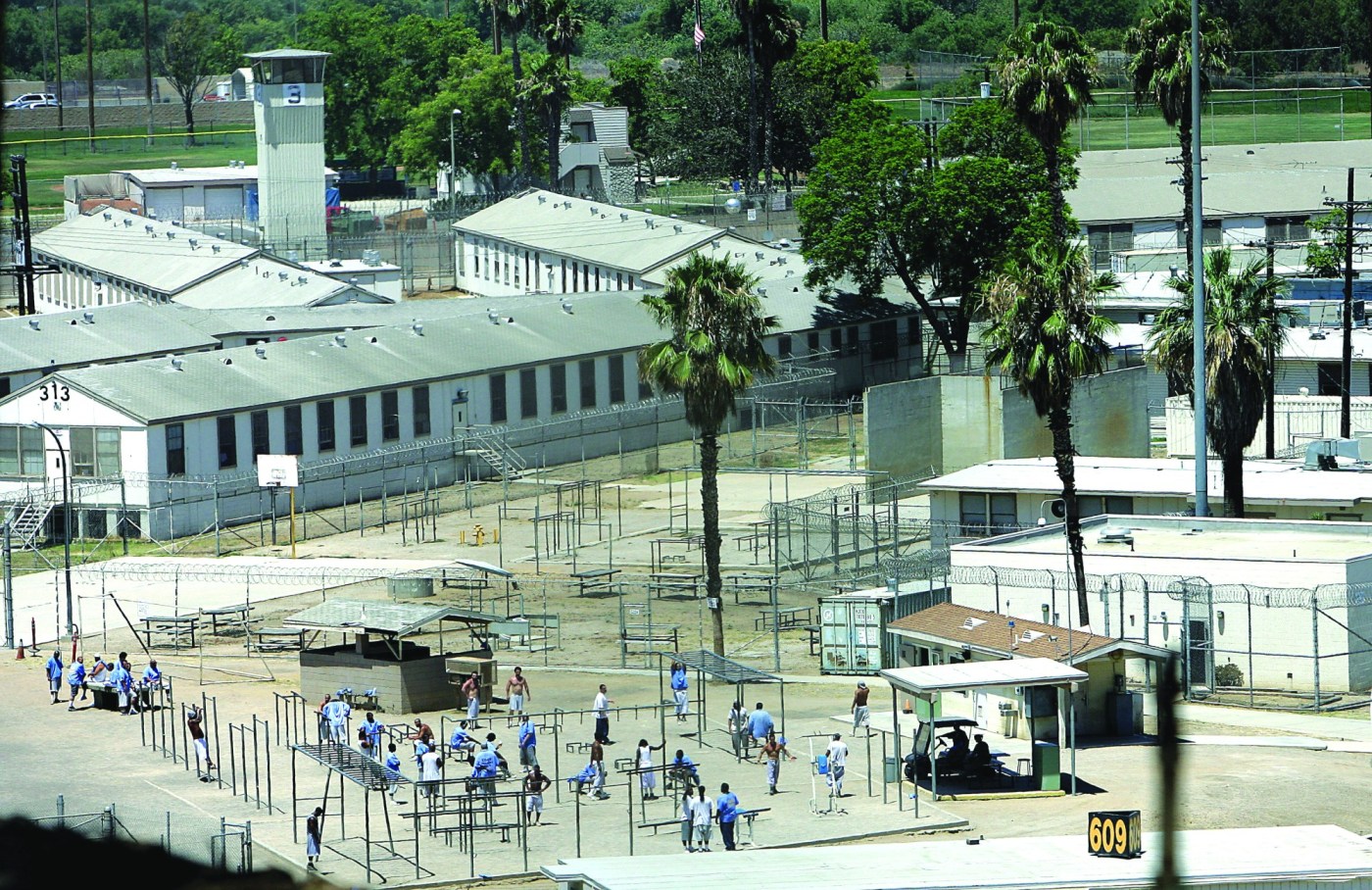The scheduled closings of a pair of California oil refineries has state officials scrambling to make sure supplies of gasoline remain stable and don’t lead to price spikes at the pump.
Gov. Gavin Newsom’s staff recently drafted language for a potential bill to bring before the Legislature in Sacramento, aimed at boosting oil production in the state.
Related Articles
Opinion: Big Oil’s recycling lies are well documented. We need accountability.
Bay Area city still working diligently to keep Valero refinery
Letters: Barbara Lee’s more of the same won’t solve Oakland’s homeless problem
Letters: Homelessness is not an identity for Oaklanders
Garamendi: Insurance companies should sue Big Oil for climate change damage
And in a separate move, the California Energy Commission hopes to keep a refinery in Northern California open by reportedly searching for a private company to buy it.
“The pressure’s already been building, but now refineries are leaving,” said Patrick De Haan, head of petroleum analysis at GasBuddy. “California seems to be saying, ‘OK, wait a minute, let’s take a step back here,’ and now California wants to move a little bit closer to collaboration” between the petroleum industry and state policies.
Proposed bill in the works
Environmental groups recently leaked provisions of a proposed bill that would fast-track drilling permits in California.
Specific to Kern County, where about 75% of oil production in the state is done, drillers would be exempt from lawsuits from CEQA, the state’s California Environmental Quality Act, through the start of 2036. Kern County already has its own oil permitting system.
“I’d rather not say our source,” said Dan Ress, senior attorney at the Center on Race, Poverty and the Environment, “but what I can tell you is that multiple people received it from the governor’s office … and those people shared it with the rest of us.”
At least a dozen environmental groups have called the draft language “a blank check” to industry.
“The proposal is basically drill, baby, drill for California,” said Hollin Kretzman, senior attorney for the Center for Biological Diversity. “It’s going to eviscerate our most important environmental and public health protections under state law.”
A spokesperson for Newsom’s office confirmed to the Union-Tribune that the wording in the proposed bill originated in the governor’s office but emphasized it is only draft language.
“We continue to work with the Legislature on policy that will help stabilize California’s petroleum market while ensuring a safe, reliable and affordable supply of transportation fuels,” said Daniel Villaseñor, Newsom’s deputy director of communications.
The governor’s office said the proposal also includes new regulatory requirements for idle pipelines, “strictly prohibits” hydraulic fracturing of oil wells and establishes a 2-for-1 permitting approach.
That means that before a new well is drilled, two other wells will be plugged and abandoned.
The governor’s office said Newsom remains committed to making sure any new drilling remains at least 3,200 feet away from sensitive areas such as schools and homes.
It’s unclear what happens next. As yet, the bill has no sponsor in either the California Assembly or the Senate and the current legislative session wraps up in little more than a month on Sept. 12.
Oil pumps and drilling equipment in an oil field in Kern County, where the majority of California’s oil and gas production is centered. (Brian van der Brug/Los Angeles Times/TNS)
According to the Bakersfield Californian, senior officials in the Newsom administration consulted with Kern County Planning and Natural Resources Department director Lorelei Oviatt to craft the proposed bill.
“The Legislature has to do something,” Oviatt told the newspaper, saying another refinery could close or that owners of pipelines serving Northern and Southern California may shut down because lower amounts of crude oil may flow through them.
Anybody want to buy a refinery?
The proposed legislation comes after Valero notified state energy officials earlier this year of its intention to shut down its refinery in the Northern California city of Benicia by 2026.
And the Valero announcement came just a few months after Phillips 66 announced it will close its twin Southern California refinery facilities in Carson and Wilmington by the end of this year.
The Valero and Phillips 66 facilities combine to account for roughly 20% of the state’s crude oil capacity, leading fuel analysts to raise concerns that the closures will strain supplies of the specially blended gasoline that is sold to California drivers.
Last week, Reuters cited three sources saying that officials at the California Energy Commission are actively looking for a company to buy the Valero refinery and keep it running.
Asked about the Reuters story, the commission in an email to the Union-Tribune said it “is actively supporting conversations with a variety of market players to discuss pathways to address the impacts” of the pending Valero and Phillips 66 closures.
Might Valero change its mind? Company executives threw cold water on that, saying “nothing has changed” during Valero’s second quarter earnings call on July 24.
“We’ve been in discussions with the CEC (California Energy Commission) and other elected officials and policy officials regarding Benicia’s future, and I think there’s a genuine desire for them to avoid the refinery closure,” Valero general counsel Richard Joe Walsh told analysts. “But there’s no solutions that have materialized, at least not from our perspective.”
Ed Hirs, energy fellow at the University of Houston, said there is “absolutely zero” chance the California Energy Commission can find a potential buyer for the refinery in Benicia.
“If Valero has decided to close it, it’s pretty obvious that Valero already had it out on the market for a long time and there are no buyers,” Hirs said.
Considering the costs of dismantling the refinery will cost “tens of millions of dollars” — not to mention the costs of restoring the site’s grounds to meet environmental standards — Hirs said, “I think the best thing for California to do is to let it shut down” and make sure Valero pays the remediation expenses, rather than looking for another company to keep the refinery going.
The California Energy Commission did not respond to the Union-Tribune when asked if the state would consider giving a financial incentive to a potential buyer or if there’s any chance California would consider operating the Benicia refinery on its own.
A change in tone
Newsom has taken plenty of verbal shots at the petroleum industry during his time in office.
When gasoline prices spiked to more than $6 a gallon in late summer and early fall of 2022 and 2023, he accused oil companies of “lying and gouging Californians to line their own pockets.”
When Newsom signed Senate Bill X1-2, which created the Division of Petroleum Market Oversight to monitor California’s oil and gasoline companies, into law in March 2023 he appeared at a podium with a sign reading, “Holding Big Oil Accountable.”
But shortly after Valero announced its plans to close the Benicia refinery, the governor appeared to a take on a more conciliatory tone.
Newsom directed the California Energy Commission and other agencies to “redouble the state’s efforts to work closely with refiners,” make sure “refiners continue to see the value in serving the California market, even as demand for fossil fuels continues its gradual decline over the coming decades” and “reinforce the state’s openness to a collaborative relationship” with the industry.
California Energy Commission vice chair Siva Gunda responded in late June with a 24-page letter to the governor that included a series of recommendations that the language in the proposed bill echoes — including streamlining permits in Kern County.
A decline in oil production within the state “has forced a shift toward increased foreign and Alaskancrude oil imports,” Gunda’s letter said.
With California importing more than 75% of its crude oil to meet the demand from in-state refineries, the letter warned that gasoline imports statewide “could increase to 25-30% of demand by the summer of 2026, and up to 50% in the Northern California region” after the Valero and Phillips 66 closures, “bringing risk of supply disruptions and price volatility.”
Shortly after receiving Gunda’s letter, Newsom told reporters “there is an imperative to move on this” and work with legislative leaders in Sacramento and he was “looking to move very quickly on some of those recommendations.”
Threading the political needle could prove tricky for the governor, whose recent out-of-state trips and social media posts on political issues beyond the Golden State have fueled talk of a potential presidential run in 2028.
Potential price spikes would deliver a body blow to California motorists, who already pay the highest average price per gallon of gasoline the country.
At the same time, loosening rules on oil permits may run headlong into California’s lofty decarbonization goals. Newsom in 2020 issued an executive order banning the sale of new gasoline-powered cars, SUVs and light trucks by 2035.
Of the proposed legislation, Kretzman of the Center for Biological Diversity said “there’s still time to talk sense into our lawmakers and get them to realize that this is a bad idea and it’s going to harm California.”
Saeed Irani, president of Irani Engineering, a company that drills and completes wells for independent petroleum producers, said he is not optimistic about the medium- and long-term prospects for the oil industry in California.
“There has to be a total change of perspective” from state policymakers, Irani said. “I believe in global warming, 100% believe in it, and the consumption of oil and gas should be reduced … but for California to cut the supply when they’re not cutting consumption is not sanity.”
For now, the price of gasoline in California has actually gone down since early April. The average for a gallon of regular in the San Diego area on Tuesday stood at $4.538 — 10 cents lower than one month ago, according to AAA.
But that’s still $1.40 higher than the national average of $3.136 per gallon.





